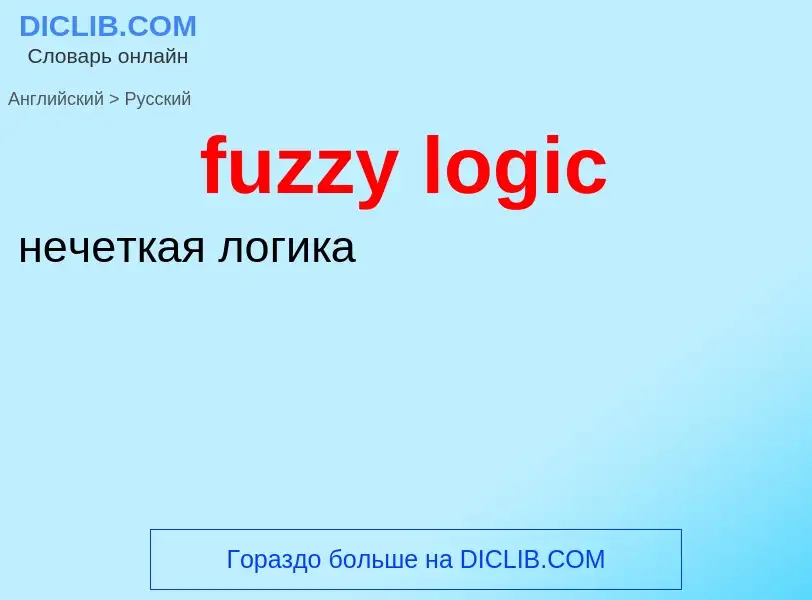Translation and analysis of words by ChatGPT artificial intelligence
On this page you can get a detailed analysis of a word or phrase, produced by the best artificial intelligence technology to date:
- how the word is used
- frequency of use
- it is used more often in oral or written speech
- word translation options
- usage examples (several phrases with translation)
- etymology
fuzzy logic - translation to russian
общая лексика
нечёткая логика
формальная система логики, разработанная Лотфи-заде (Lotfi Zadeh, университет Беркли) в 60-х годах, являющаяся расширением обычной Булевой логики. В ней значения "истина" и "ложь" заменяются значениями функции на отрезке [0, 1] (концепция частичной правды). Позволяет уйти от однозначности ответа на вопрос. Часто используется в экспертных и самообучающихся системах и системах распознавания образов
математика
нечеткая (размытая) логика
Смотрите также
Definition
Wikipedia
Fuzzy logic is a form of many-valued logic in which the truth value of variables may be any real number between 0 and 1. It is employed to handle the concept of partial truth, where the truth value may range between completely true and completely false. By contrast, in Boolean logic, the truth values of variables may only be the integer values 0 or 1.
The term fuzzy logic was introduced with the 1965 proposal of fuzzy set theory by Iranian Azerbaijani mathematician Lotfi Zadeh. Fuzzy logic had, however, been studied since the 1920s, as infinite-valued logic—notably by Łukasiewicz and Tarski.
Fuzzy logic is based on the observation that people make decisions based on imprecise and non-numerical information. Fuzzy models or fuzzy sets are mathematical means of representing vagueness and imprecise information (hence the term fuzzy). These models have the capability of recognising, representing, manipulating, interpreting, and using data and information that are vague and lack certainty.
Fuzzy logic has been applied to many fields, from control theory to artificial intelligence.

